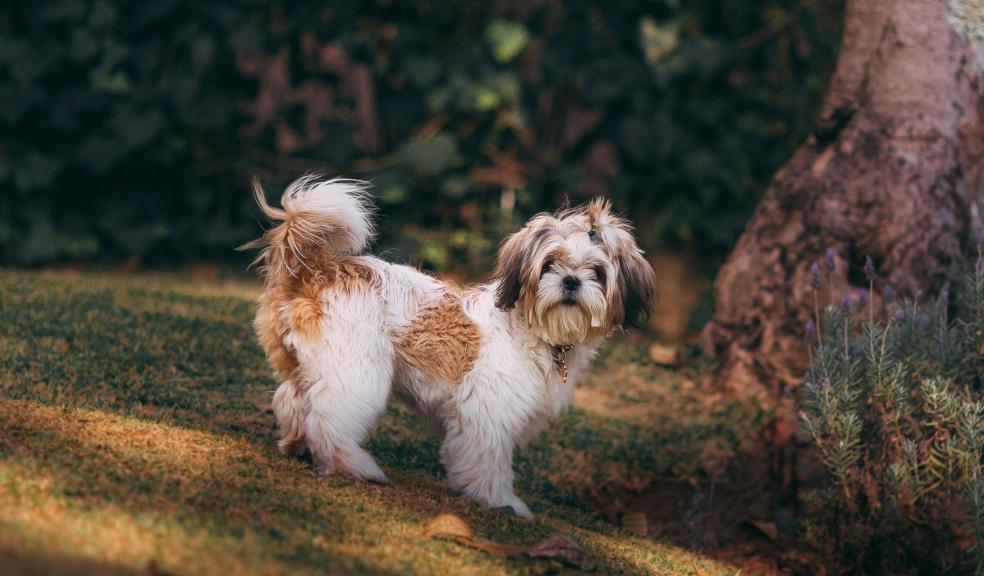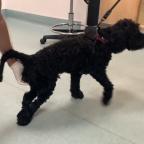
Expert Tips for Using Weed Killers Around Dogs
Spring is known for its warm weather bringing out vibrant gardens that need tending to as the growth of weeds increases; however, dog experts at Kennel Store are advising professional and casual gardeners alike to replace chemical herbicides with more natural weed killers out of concern for dog poisoning risks.
This warning comes following independent research from Kennel Store that saw Google searches for “weed killers” have increased by 550% and “dog-friendly weed killer” by 120%.
Experts from Kennel Store had this to say on weed killer poisoning in dogs:
Is Weed Killer Harmful to Dogs?
Weed killers can be harmful to dogs, depending on the type that is used. Be aware of weed killers that contain ingredients like Disulfoton, Sodium Arsenite, Metaldehyde, Ammonium Sulfamate and Borax, which are toxic for dogs and in worst-case scenarios, can cause death. If you have applied weed killers with these ingredients to your plants, make sure to keep your dogs inside as ingestion of concentrated herbicides can lead to life-threatening poisoning. Even brushing up against a plant with weed killer on it can result in health issues for dogs.
What Are The Symptoms That My Dog Has Been Poisoned by Weed Killer?
The most common symptoms that your dog has touched or ingested weed killer is if burns or sores appear around their mouth, nose or paws. If dogs are scratching themselves persistently, it could also be a sign that they have been exposed to weed killer, as it can lead to skin rashes and itching.
Dogs can also develop symptoms like vomiting, diarrhoea, difficulty breathing, seizures and excessive drooling. These can indicate that your dog has consumed other toxic substances, however, if you have let your dog near plants that have recently been sprayed with weed killer there is a more than likely chance that these are connected.
What Should I Do if My Dog Has Touched or Ingested Weed Killer?
If your dog is exhibiting symptoms of touching or ingesting weed-killer or you have seen them do it, it is important to act quickly to minimise potential harm.
- Remove your dog from the area where the weed killer has been sprayed or make sure they stay indoors, away from the plants. This will prevent further exposure to the chemical.
- If you suspect that your dog has already eaten a plant sprayed with weed killer, try to determine how much has been consumed; this will be useful for the vet to know when treating your pet.
- Call the vet as soon as possible to arrange to bring your dog in for a medical evaluation and treatment. The vet may also request that you bring in the weed killer that was used so that they can take a closer look at the ingredients.
- If you suspect or know that your dog has weed killer on their fur or skin, rinse them off with cool water to reduce the likelihood of chemicals absorbing into their coat; wear gloves to protect your own skin from the chemicals.
- Pay close attention to your dog for any further developing symptoms like vomiting or diarrhoea - if your pet begins exhibiting these, seek veterinary attention immediately.
How Can I Prevent My Dog From Accidental Poisoning by Weed Killer?
Dog-friendly weed killers are also available which your pets will benefit from. This can range from hand-weeding plants by using weeding knives, professional weed burners, or natural weed killers which are pet-friendly. You can apply a mixture of water and vinegar or water and salt to the plants via a spray bottle for a natural weed killer or pour boiling water for an effective herbicide.
It is important to exercise caution when applying chemical weed killers to your plants and make sure that your dog is far away from the treated area. Keep them in the house if possible. This will prevent the dog from accidentally ingesting or touching the weed killer. After using the weed-killer spray, keep your dog away from the plants for 24-48 hours. You can also check the label to see if it gives an estimate of how long the spray stays active on the plants.
Ultimately, treatment for accidental poisoning in dogs is one of the most expensive vet services available, sometimes costing between £300 to £5000 or even more for emergency surgeries and overnight observations. During the cost of living crisis, not only will preventing your dog from interacting with plants treated with weed killer protect your pet from a life-threatening situation, but you can also protect your wallet from expensive medical services.







